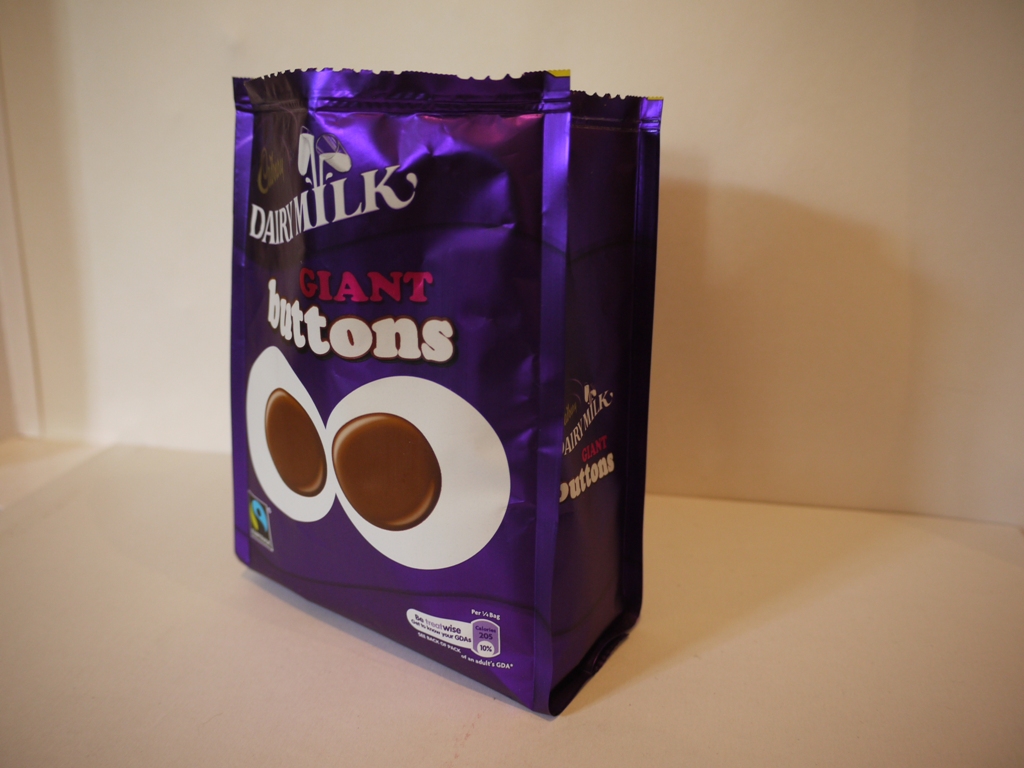by The Curious Scribbler
She is awake in her chair and watching the TV. The sound is off. If it were on she would not hear it. She is deaf.
On her table is a substantial stack of broken fragments of chocolate buttons. There is also a pool of tea. The lipstick which always props up the chocolate-smeared emery board is particularly heavily smeared with chocolate.
I tackle the problem.
“You look in a bit of a mess here,” I say. I point to the buttons. “Do you want these?”
“No,” she replies, “they are old ones.”
“They are only broken” I say, “You are throwing away perfectly good chocolate.” But I collect a paper towel from the bathroom and clear up the heap of mauled chocolate. I wash the lipstick case in warm water and return it to its place. She seems accepting rather than grateful.
The situation is worse than I thought. A layer of milky tea has spread across the table, soaking under the lizard from Lanzarote, the Chinese serpentine frog on a lily-pad, the birthday cards from me and from my sister-in-law. I pick each up and wash the table with more paper towels. A j-cloth would be handy but Health and Safety regulations in the Nursing Home determine that only disposable materials may be used for cleaning by us amateurs, the relatives. We don’t even have the use of a drying up cloth or a washing up brush in the kitchen for fear we might spread contamination. As a result all the personally owned mugs become rimed with tannins, brownish in their crevices.
The tea on her table derives from my mother’s obsession with placing her empty mug on its side when it is finished, or in her words “dead”. It is not invariably completely empty when she makes this decision.
As I clean I pause to speak distinctly and slowly in her ear. “This- happens- because- you- insist-on putting- your -mug -down-on-it’s-side.” I say. She hears the words. “Possibly,” she replies, “ but I have found that it is best this way.”
When I am done, I water the flowers, restock her mini fridge with six packets of Cadbury’s Giant Chocolate Buttons, and her cupboard with three bottles of Maple Syrup. Dementia likes sweet flavours. She has long taken maple syrup on her porridge. Now she demands it on her soup and pureed meals as well. One of the nurses is pregnant, nauseous, and cannot bear to feed my mother this mixture. She delegates lunch and supper feeding to other carers.
Poor old lady you think, unable to feed herself. But she is able. She simply elects not to. That is what the carers are there for.
Her room tidied, I sit down on the bed beside her. My gorge rises. There on the table is a new stack of nine or ten chocolate button fragments. With her right thumbnail she is deftly prizing two fused chocolate buttons apart and discarding the pieces. Little wonder many are stuck together. All day she sits with the bag tucked down beside her thigh. The buttons become warm. They stick together. She refuses to have them placed on a plate or little bowl on her table.
“You-are-breaking-your-buttons-again.” I state clearly.
“Yes, these are not suitable ones,” she replies, “they are old. I must throw them away.”
There is a response on the tip of my tongue. But I confine myself to telling her that she would never have allowed a child to waste food in this way. I, as a child, was not allowed to leave the table until I had eaten everything on my plate. “Waste is anathema to me.” she used to say.
She is unmoved by my reasoning. I am not sure that she remembers what a child is. I firmly suggest putting the buttons back in the fridge for a while so they will become firm again.
With dignity and force, she refuses. “No,” she says. “ I find it works better this way.”



I always detested, and still do with all my heart & brain, the word Dementia used, as it is, to embrace a multitude of facets of an impaired cognitive behaviour, clearly difficult to explain, accept and/or understand. Although a multifaceted condition the quirkiness of some situations or statements proffered by those suffering it do not cease to puzzle some of us who are still on the other side of the barrier which inevitably comes up… still trying to make sense of it all, still trying to add some rationality where rationality does not work anymore because the parameters have change… A quirkiness, common denominator to almost all of them, which often brings sadness because it highlights the growing distance in the communications game…
Do we accept it? Do we challenge it?
We accept it. But it is helpful in a way to scrutinise it and understand the underlying, distorted logic. My mother was perfectly content with her unique perception. And she had never been one to adapt her views in the light of other people’s opinions.
So…it is as it was…